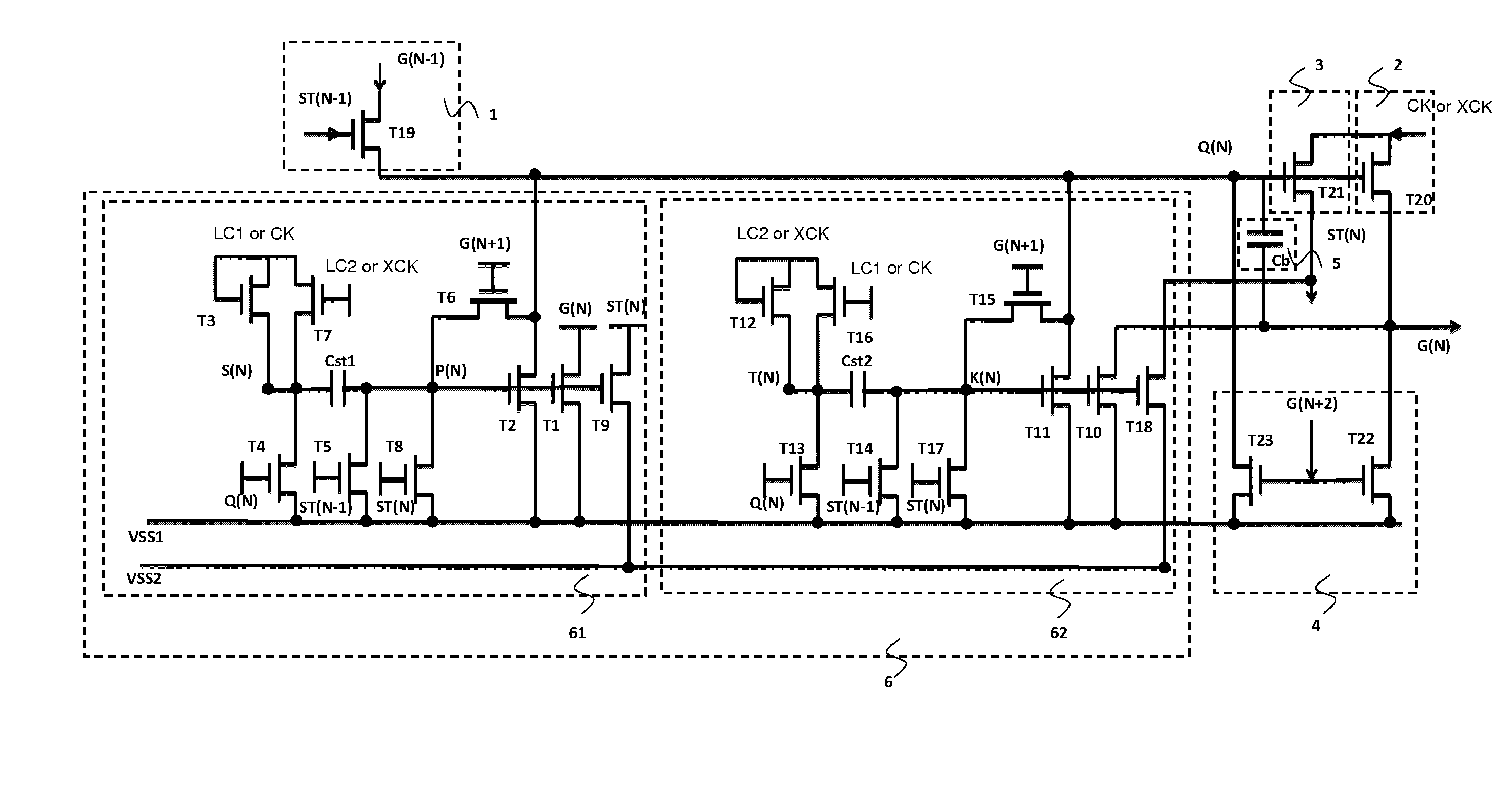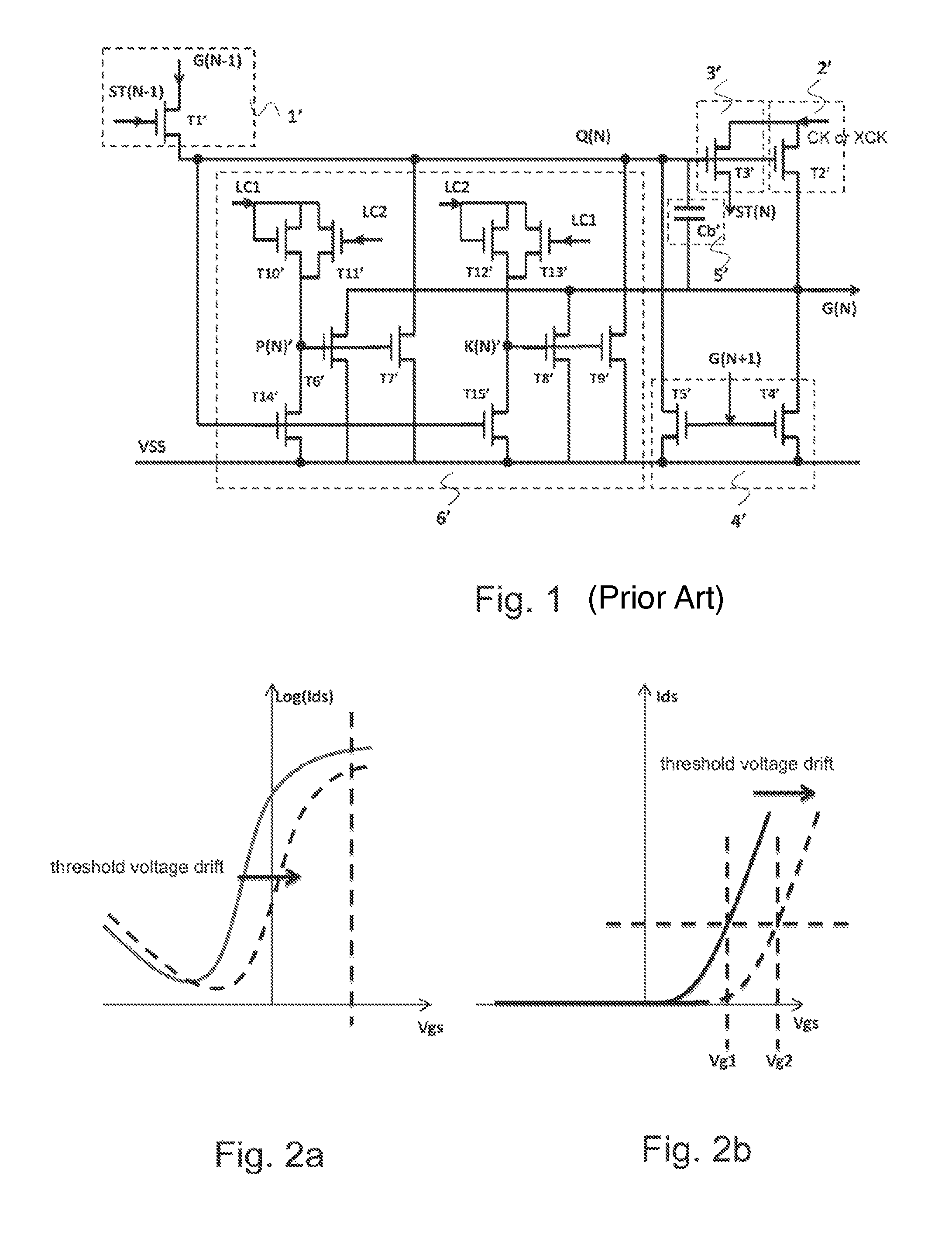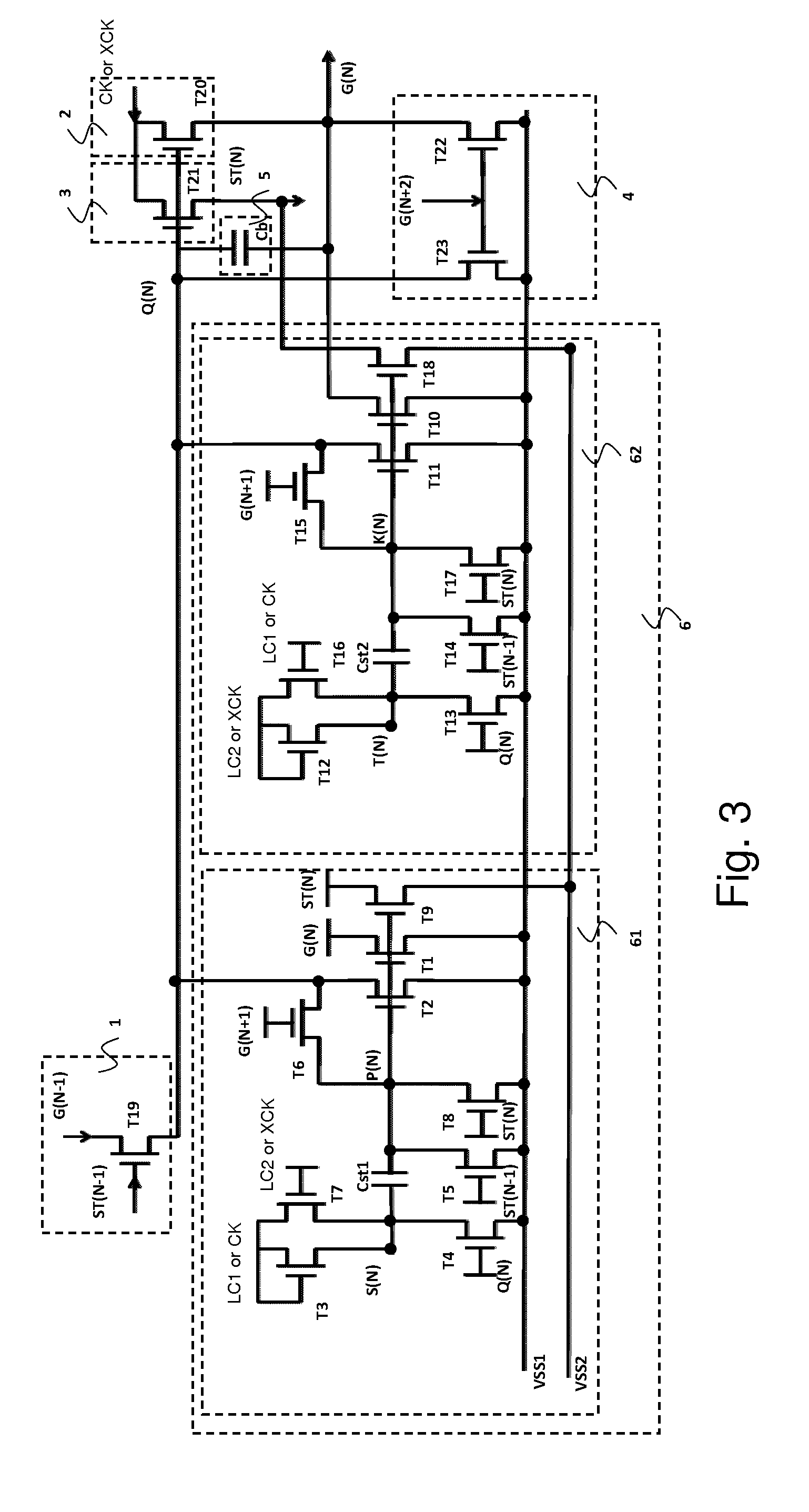Self-compensating gate driving circuit
a self-compensation and gate driving technology, applied in the field of display skill, can solve the problems of affecting the reliability suffering the most serious voltage stress in the entire gate driving circuit, and abnormal image display of the liquid crystal display, so as to promote the reliability of long-term operation and reduce the influence of the threshold voltage drift on the operation of the gate driving circui
- Summary
- Abstract
- Description
- Claims
- Application Information
AI Technical Summary
Benefits of technology
Problems solved by technology
Method used
Image
Examples
first embodiment
[0050]Please refer to FIG. 6, which is a circuit diagram of the first pull-down holding part employed in FIG. 3. The first pull-down holding part comprises: a first thin film transistor T1, and a gate of the first thin film transistor T1 is electrically coupled to the first circuit point P(N), and a drain is electrically coupled to the Nth horizontal scanning line G(N), and a source is inputted with the first DC low voltage VSS1; a second thin film transistor T2, and a gate of the second thin film transistor T2 is electrically coupled to the first circuit point P(N), and a drain is electrically coupled to the Nth gate signal point Q(N), and a source is inputted with the first DC low voltage VSS1; a third thin film transistor T3, which utilizes a diode-connection, and a gate of the third thin film transistor T3 is electrically coupled to a first low frequency clock LC1 or a first high frequency clock CK, and a drain is electrically coupled to the first low frequency clock LC1 or a fi...
second embodiment
[0058]Please refer to FIG. 8 in conjunction with FIG. 6. FIG. 8 is a circuit diagram of the first pull-down holding part employed in FIG. 3. In FIG. 8, a third capacitor Cst3 is added on the basis of FIG. 6. An upper electrode plate of the third capacitor Cst3 is electrically coupled to the first circuit point P(N) and a lower electrode plate of the third capacitor Cst3 is inputted with the first DC low voltage VSS1. The main function of the third capacitor Cst3 is to store the threshold voltage. The circuit structures of the first pull-down holding part and the second pull-down holding part are the same. Certain parasitic capacitance exist in the first thin film transistor T1 and the second thin film transistor T2 themselves and the function of the third capacitor Cst3 can be replaced thereby. Therefore, in actual circuit design, the third capacitor Cst3 can be omitted.
third embodiment
[0059]Please refer to FIG. 9 in conjunction with FIG. 6. FIG. 9 is a circuit diagram of the first pull-down holding part employed in FIG. 3. In FIG. 9, a twenty-fourth thin film transistor T24 is added on the basis of FIG. 6. A gate of the twenty-fourth thin film transistor T24 is electrically coupled to the N+1th horizontal scan line G(N+1), and a drain is electrically coupled to the second circuit point S(N), and a source is inputted with the first DC low voltage VSS1; the circuit structures of the first pull-down holding part and the second pull-down holding part are the same. The main objective of the twenty-fourth thin film transistor T24 is to compensate that voltage level of the Nth gate signal point Q(N) in the first stage is not high enough and leads to a insufficient pulling down of the voltage level to the second circuit point S(N) in the functioning period.
PUM
 Login to View More
Login to View More Abstract
Description
Claims
Application Information
 Login to View More
Login to View More - R&D
- Intellectual Property
- Life Sciences
- Materials
- Tech Scout
- Unparalleled Data Quality
- Higher Quality Content
- 60% Fewer Hallucinations
Browse by: Latest US Patents, China's latest patents, Technical Efficacy Thesaurus, Application Domain, Technology Topic, Popular Technical Reports.
© 2025 PatSnap. All rights reserved.Legal|Privacy policy|Modern Slavery Act Transparency Statement|Sitemap|About US| Contact US: help@patsnap.com



